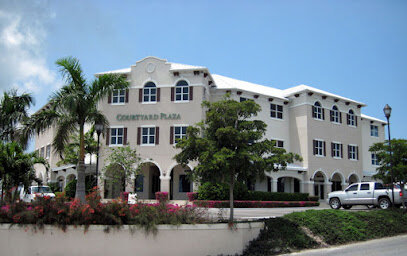Best Brokerage Lawyers in Turks and Caicos Islands
Share your needs with us, get contacted by law firms.
Free. Takes 2 min.
Free Guide to Hiring a Real Estate Lawyer
Or refine your search by selecting a city:
List of the best lawyers in Turks and Caicos Islands
About Brokerage Law in Turks and Caicos Islands:
Brokerage law in Turks and Caicos Islands refers to the regulations and legal framework governing the buying, selling, and leasing of real estate properties through brokers. It includes rules related to contract formation, property disclosure, commissions, and disputes resolution.
Why You May Need a Lawyer:
You may need a lawyer specializing in brokerage law in Turks and Caicos Islands for various reasons, such as drafting or reviewing contracts, resolving disputes with brokers, ensuring compliance with local laws, and assessing the legality of real estate transactions.
Local Laws Overview:
In Turks and Caicos Islands, the key aspects of brokerage law include the Real Estate (Brokerage License) Ordinance, which regulates the licensing and conduct of brokers, as well as the Contract (Rights of Third Parties) Ordinance, which addresses the rights of third parties in real estate transactions.
Frequently Asked Questions:
1. Do I need a broker to buy or sell property in Turks and Caicos Islands?
No, hiring a broker is not mandatory, but it is recommended for a smoother transaction process.
2. What are the typical commission rates for brokers in Turks and Caicos Islands?
Commission rates vary but are typically around 5-7% of the property's selling price.
3. Can I sue a broker for negligence or misconduct?
Yes, you can take legal action against a broker for negligence, misconduct, or breach of contract.
4. Are there any restrictions on foreign individuals buying property in Turks and Caicos Islands?
Foreign individuals can buy property in Turks and Caicos Islands, but they may need to obtain a non-belonger landholding license.
5. How can I verify a broker's license in Turks and Caicos Islands?
You can verify a broker's license by checking with the Turks and Caicos Real Estate Association or the Department of Planning and Infrastructure.
6. What should I consider before signing a brokerage agreement?
You should carefully review the terms of the agreement, including commission rates, duration, services provided, and termination clauses.
7. How can I resolve a dispute with my broker?
You can initially try to resolve the dispute through negotiation or mediation. If unsuccessful, you may consider filing a complaint with the relevant regulatory body or seeking legal advice.
8. What are my rights as a buyer or seller in a real estate transaction?
As a buyer or seller, you have the right to fair treatment, full disclosure of property information, and protection against fraud or misrepresentation.
9. Can a broker represent both the buyer and seller in a transaction?
Dual agency, where a broker represents both parties, is legal in Turks and Caicos Islands but requires full disclosure and consent from both parties.
10. What are the steps involved in closing a real estate deal in Turks and Caicos Islands?
The closing process typically includes completing the purchase agreement, conducting inspections, securing financing, transferring ownership, and paying closing costs.
Additional Resources:
For more information on brokerage law in Turks and Caicos Islands, you can consult the Turks and Caicos Real Estate Association or the Department of Planning and Infrastructure.
Next Steps:
If you require legal assistance in brokerage law in Turks and Caicos Islands, consider contacting a reputable law firm specializing in real estate law. They can provide guidance, representation, and ensure your rights are protected throughout the transaction process.
Lawzana helps you find the best lawyers and law firms in Turks and Caicos Islands through a curated and pre-screened list of qualified legal professionals. Our platform offers rankings and detailed profiles of attorneys and law firms, allowing you to compare based on practice areas, including Brokerage, experience, and client feedback.
Each profile includes a description of the firm's areas of practice, client reviews, team members and partners, year of establishment, spoken languages, office locations, contact information, social media presence, and any published articles or resources. Most firms on our platform speak English and are experienced in both local and international legal matters.
Get a quote from top-rated law firms in Turks and Caicos Islands — quickly, securely, and without unnecessary hassle.
Disclaimer:
The information provided on this page is for general informational purposes only and does not constitute legal advice. While we strive to ensure the accuracy and relevance of the content, legal information may change over time, and interpretations of the law can vary. You should always consult with a qualified legal professional for advice specific to your situation.
We disclaim all liability for actions taken or not taken based on the content of this page. If you believe any information is incorrect or outdated, please contact us, and we will review and update it where appropriate.
Browse brokerage law firms by city in Turks and Caicos Islands
Refine your search by selecting a city.















